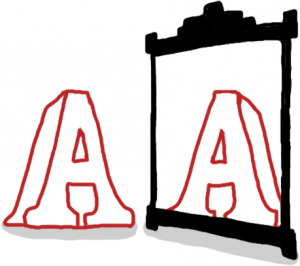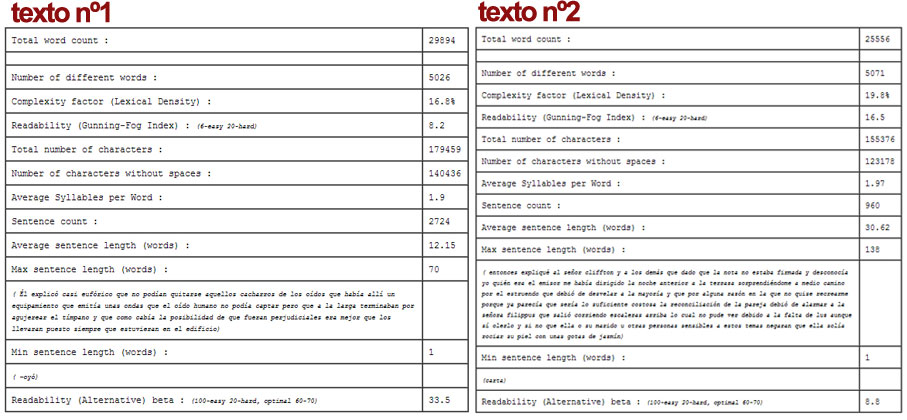Have you ever used any software to analyse your writings? If you haven’t already, you should try how it feels to discover, after having thought that your story was spotless, that it’s actually full of afterthoughts, repetitions, and other additions that add no meaning at all to your text.
Text analysers are used in several fields such as marketing or academic publishing, but they can also be useful in creative writing. Depending on the analyser, we can make just a quantitative study that sheds very general conclusions, or make a more complex analysis involving semantics or vocabulary.
Leaving aside an Internet search where we could find all kinds of online applications offering this kind of functions, I will propose an online basic text analyzer I have used to improve some of my own stories.
HTTP://TEXTALYSER.NET/
To use Text Analyser you only have to paste your text or upload it into a file. Then press “Analyze text”, and magic! First you’ll get results regarding a more complex analysis through parameters like “Readability” or “Repetition rate”, and they you will see a list of its words arranged by the number of times they have been used according to several combinations.
What significant data provides a quantitative text analysis?
One of the most interesting things you can do with http://textalyser.net/ is comparing reports of different works written in different moments, or in different genres, styles or lexical registers. After performing the analysis on two of my own stories, I was surprised by the differences in certain areas, and through some of these metrics I could anticipate how the experience of the reader would be like.
In the second part of the report we find the repeated words and groups of words. There are some words you will be forced to use, like some articles, adverbs, prepositions… But after this analysis of my own work I discovered that the worse impression is not caused by the repetition of separate words, but rather by certain groups of two or more words that almost never provide a valuable meaning.
In those cases, the best think to do is deleting that words or looking for a substitute in order to achieve a wider lexical variety
My own analysis
Every writer should do an analysis of his own texts according to his criteria, but here I will explain what I learned after analyzing one of my novels.
In my opinion, in the first stage of writing it’s all right not to obsess with things such as word repetition, but I find it useful in subsequent revisions, especially when I’m polishing the text.
These are data from two different works I wrote with a difference of several years. As I have grown as a writer, I expect my writing to have changed as well, and I certainly can see that change reflected in these reports. I seem to repeat words less and I can use a bigger number of different words (click to enlarge).
After checking out these reports I decided I wouldn’t just look at them as a curiosity, but I would make the most out of them. I would learn from these data and use that information to improve my future stories.
So after doing a few of these analysis I composed my own “black list” of word combinations, composed by words like:
- Time adverbs: “a moment”, “a while”, “time”, “suddenly”, “soon”, “in the end”.
- Adverbs or adverbial of manner: “so”, “with attention”, “in a way”, “suddenly”, “from one place to another”.
- Quantity adverbs: “a little”, “somewhat”
- Of place: “around”, “in front”.
- Facial and body expressions: “with a smile”, “he pursed”, “looked at him”, “eyes wide open”, “he frowned/shrugged”.
- Action verbs: “he jumped on”, “he turned around”
After removing many of these words from my books I realised my text hadn’t lost any of its meaning at all, and the reading had become more fluent and focused.
Apart from removing words you can also use these metrics to polish your style and add coherence in the use of expressions: for example, when we use synonym words like man and guy, do we do it in a consistent way or do we just improvise?
Conclusion
I think a writer should perform this kind of lexical analysis on his own production to think further about the meaning of words and, if necessary, reformulate certain style issues.
Being obsessed with the repetition of words or with a quantitative analysis is useless, but it’s good to learn how to formulate or control the spontaneity of your own writing.
In the process of a style analysis, if there is a moment when I doubt if I should remove a word or not, I keep it only when I think the action could not have happened in any other way.
What have you discovered about your style using a text analyser?


Leave a Reply